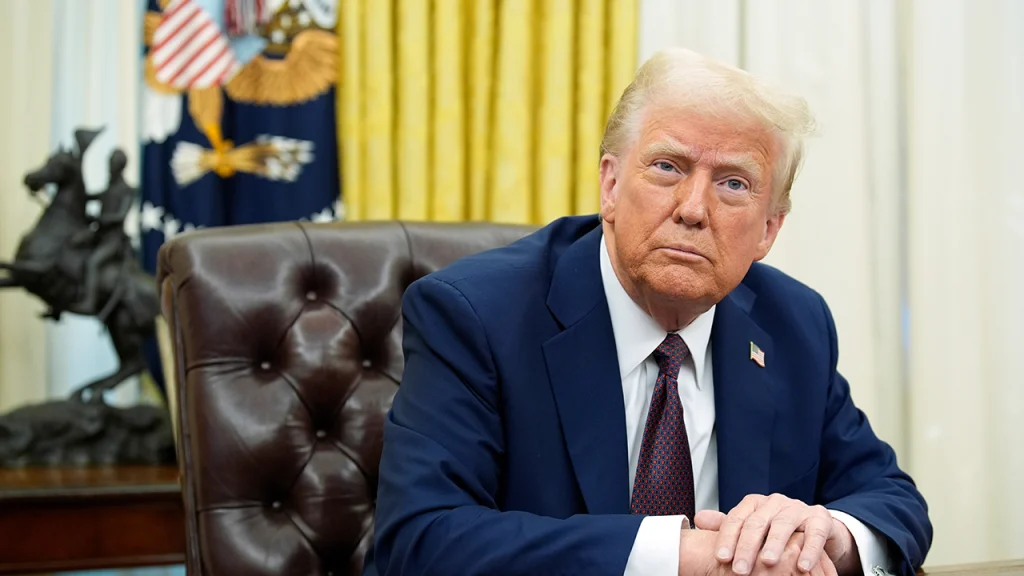Trump Outlines “Reverse Migration” Plan in Thanksgiving Message Amid National Guard Tragedy
In a late-night Thanksgiving message on Truth Social, President Donald Trump shared his vision for a dramatic overhaul of U.S. immigration policy while also acknowledging a tragic shooting near the White House that claimed the life of a National Guard member. His message, delivered during a holiday typically focused on gratitude and unity, outlined what he termed a “reverse migration” strategy that would significantly restrict immigration and expand deportations.
Trump’s immigration plan centers on a complete pause of migration from countries he characterized as “Third World,” alongside the revocation of what he claimed were “millions” of admissions approved during the Biden administration. The president specifically mentioned revoking admissions “signed by Sleepy Joe Biden’s Autopen,” suggesting that some immigration approvals lacked proper oversight. His proposal would also target for removal individuals he deems public charges, security risks, or “non-compatible with Western Civilization” – language that has raised concerns among immigration advocates. Trump framed these measures as necessary for an immigration system he described as overwhelmed and in need of time to “fully recover.”
The president’s immigration announcement came against the backdrop of a shooting near the White House that left one National Guard member dead and another fighting for his life. Trump shared that 20-year-old Sarah Beckstrom of West Virginia had died in what officials called a “targeted” attack, while 24-year-old Andrew Wolfe remains in serious condition. The suspected shooter, identified as Rahmanullah Lakanwal, a 29-year-old who legally entered the United States in 2021 under humanitarian parole as part of Operation Allies Welcome following the U.S. withdrawal from Afghanistan, is also reportedly in serious condition. The timing of this tragedy appeared to reinforce Trump’s resolve regarding his immigration stance.
Beyond the immediate pause on certain immigration categories, Trump outlined additional elements of his plan that would fundamentally reshape America’s approach to immigration and citizenship. He promised to end federal benefits for non-citizens, a move that could affect millions of legal residents and their families. Perhaps most dramatically, Trump suggested he would implement a process to denaturalize migrants accused of undermining “domestic tranquility,” potentially stripping citizenship from individuals already naturalized. These proposals, combined with his pledge to expand deportations, represent one of the most sweeping immigration reform plans of his presidency.
Trump’s message reflected his continued focus on immigration as a defining issue of his administration. By connecting the tragic shooting of National Guard members with his immigration agenda, the president appeared to be drawing a direct line between national security concerns and his policy proposals. This messaging strategy has been consistent throughout his political career, though critics have often questioned whether such connections oversimplify complex issues. The specific mention of compatibility with “Western Civilization” as a criterion for remaining in the country introduces cultural considerations to immigration policy in ways that diverge from traditional approaches based primarily on legal status, security screening, and economic contributions.
The president concluded his Thanksgiving message with a statement that captured both holiday sentiment and political warning: “Other than that, HAPPY THANKSGIVING TO ALL, except those that hate, steal, murder, and destroy everything that America stands for — You won’t be here for long!” This closing remark, combining seasonal greetings with an implied threat of removal for those deemed at odds with American values, epitomizes Trump’s characteristic communication style that blends celebration and confrontation. As the nation processes both this policy announcement and the tragedy near the White House during a holiday weekend, the president’s words signal that immigration will remain at the forefront of national political discourse in the coming months.


